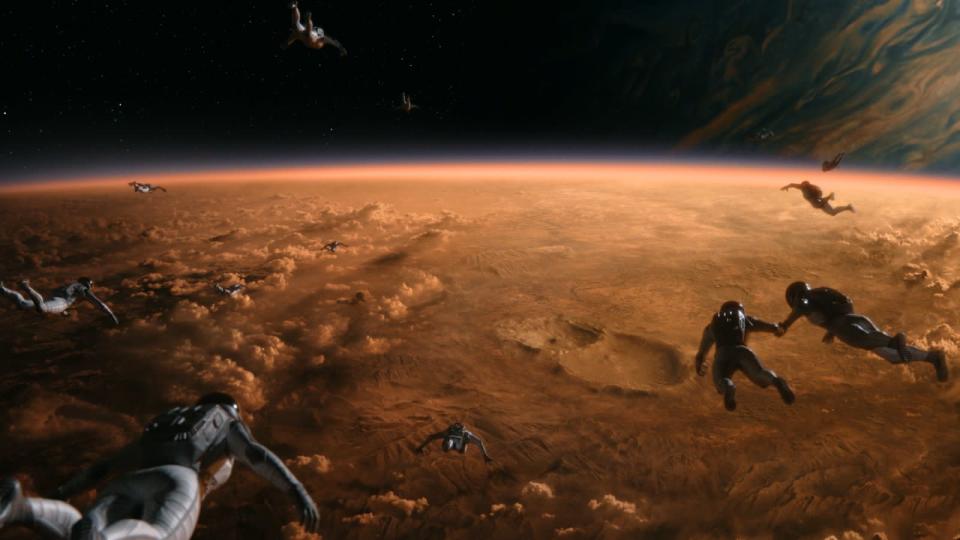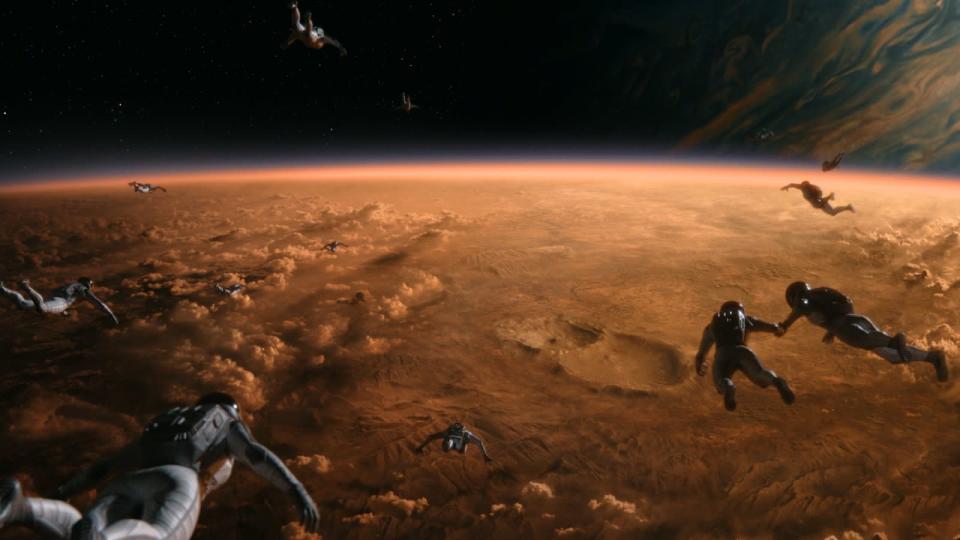‘Cosmos: Possible Worlds’ finds hope for humanity in a hopeless era
Co-creator Ann Druyan: " it does matter what's true."
In a time where it's easy to feel a bit concerned about the fate of civilization -- take your pick of calamities, really -- National Geographic's Cosmos is like a hope-filled salve. Developed by Ann Druyan, the co-creator of the original show together with her husband Carl Sagan, and hosted by Neil deGrasse Tyson, Cosmos: Possible Worlds is an exploration of humanity, our past, present and our potential future. The 1980 series redefined how complex topics could be communicated on TV. And with Possible Worlds, Druyan and her co-writer, Star Trek alum Brannon Braga, recapture that magic. But, it's delivered with a new sense of urgency for our turbulent era, which is fueled by climate change and political instability.

"This season is based on my belief that we have what it takes to get to a real exciting future," Druyan said in an interview with Engadget. "I base my belief on stories of the courage of our ancestors, the generations of searchers for the truth who have been willing to die, to stand up for what they believed was true. As well as the great migrations of generations that came before us. As Carl and I wrote earlier, we humans are capable of greatness. We all live in the long shadow of climate change and other environmental depredation."
But, Druyan added, she thinks we can build a better future by taking what science is telling us to heart: "Not just keeping it as a collection of amazing facts that you compartmentalize for a couple of minutes... but instead a way of seeing absolutely everything."
Like the previous season of Cosmos, released in 2014, the show places deGrasse Tyson in the "Ship of the Imagination," a sleek craft right out of Flight of the Navigator, which he uses to bounce around time and space. [Possible Worlds was delayed as Fox and National Geographic investigated, and cleared, deGrasse Tyson of sexual misconduct allegations.] It's a flexible narrative conceit, as it gives Cosmos the freedom to explore a wide variety of topics. In one episode, he explores what a human colony might look like on a distant planet, long after we've made Earth uninhabitable. In another, he shows how future interstellar explorers could practically mirror the achievements of the Lapita, the early Polynesian explorers who braved the uncharted Pacific Ocean thousands of years ago.
The specter of climate change also makes the series seem more like a cultural wake-up call. "I remember in the first season of Cosmos, which we were writing in 1978, we were warning about inadvertent climate modification," Druyan said. "It's kind of daunting, because Carl and Steve Soter, who wrote that first season, with us, they had been warning about greenhouse gasses building up in the atmosphere for decades before that. And so of course I feel a tremendous urgency. It's the fires, it's the floods. It's the strange temperatures, it's the warming of the oceans."

Part of what makes Cosmos remarkable is its ability to directly explore contentious topics, like man-made climate change and religious objections to evolution and heliocentricity, without seeming preachy. Its storytelling is buoyed by some of the best CG imagery on television, which can effortlessly move between showing us the death of our solar system and giving us a microscopic view of the molecules that begat life on Earth.
The show also confronts political obstacles to science: One episode of the new season is dedicated to the story of Nikolai Vavilov, the Soviet scientist and geneticist who explored a bold theory of plant cultivation. His work had the potential to help solve Soviet Russia's hunger crisis, but he fell out of favor with Josef Stalin, who preferred the pseudo-scientific theories of Trofim Lysenko. He believed, mistakenly, that environmental change could influence genetics.

Vavilov died of starvation in prison, while his team of 28 perished protecting the Leningrad seedbank during a 28-month Nazi siege during World War II. It might seem like their work was in vain, but they paved the way for Svalbarg Global Seed Vault in Norway, a secure facility that serves as a backup against global agricultural catastrophe. "They gave their lives to us," deGrasse Tyson said. "If only our future was as real and precious to us, as it was to them."
In many ways, Cosmos feels like a direct response to an increasingly unstable political world. "Some time after 2014, we fell down a rabbit hole," Druyan said. "And we've been in that rabbit hole ever since.... I have never felt so completely astonished by just the fantasy and fiction and lying that seems to be, just our daily routine here. So that's why I felt the urgency of Cosmos more than ever. Because it does matter what's true. Not absolute truth, we don't claim we have that. But just a methodology for getting at the truth... Verifiable truths."
Cosmos: Possible Worlds premieres on National Geographic on March 9th.


